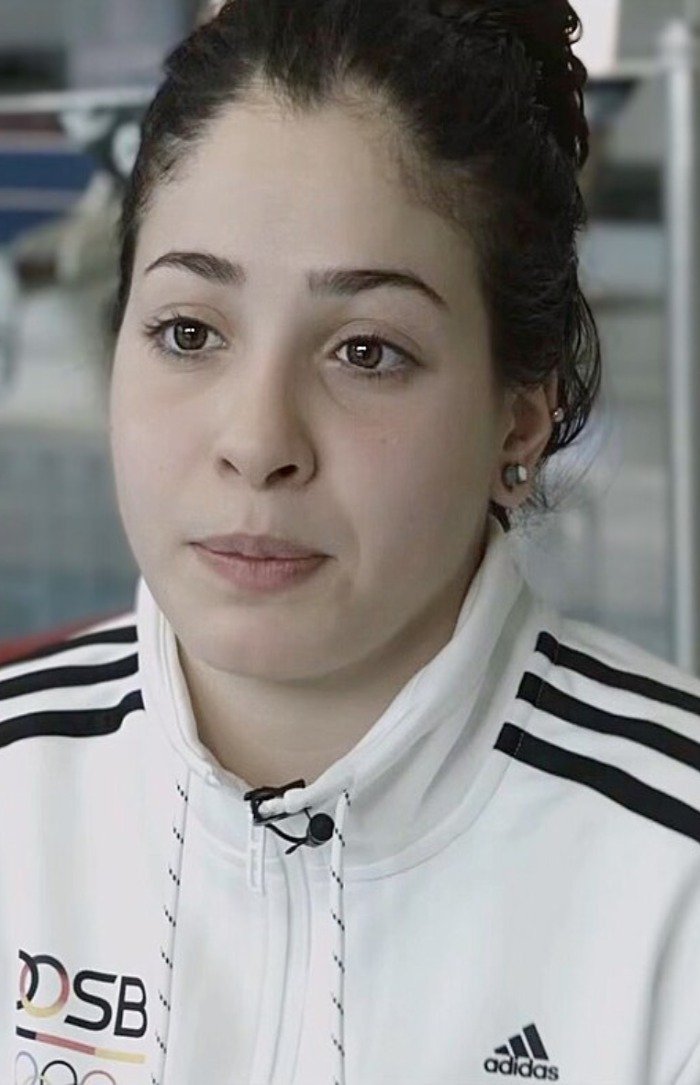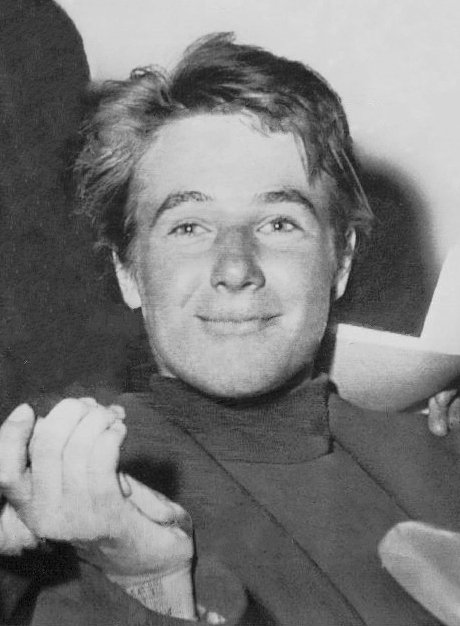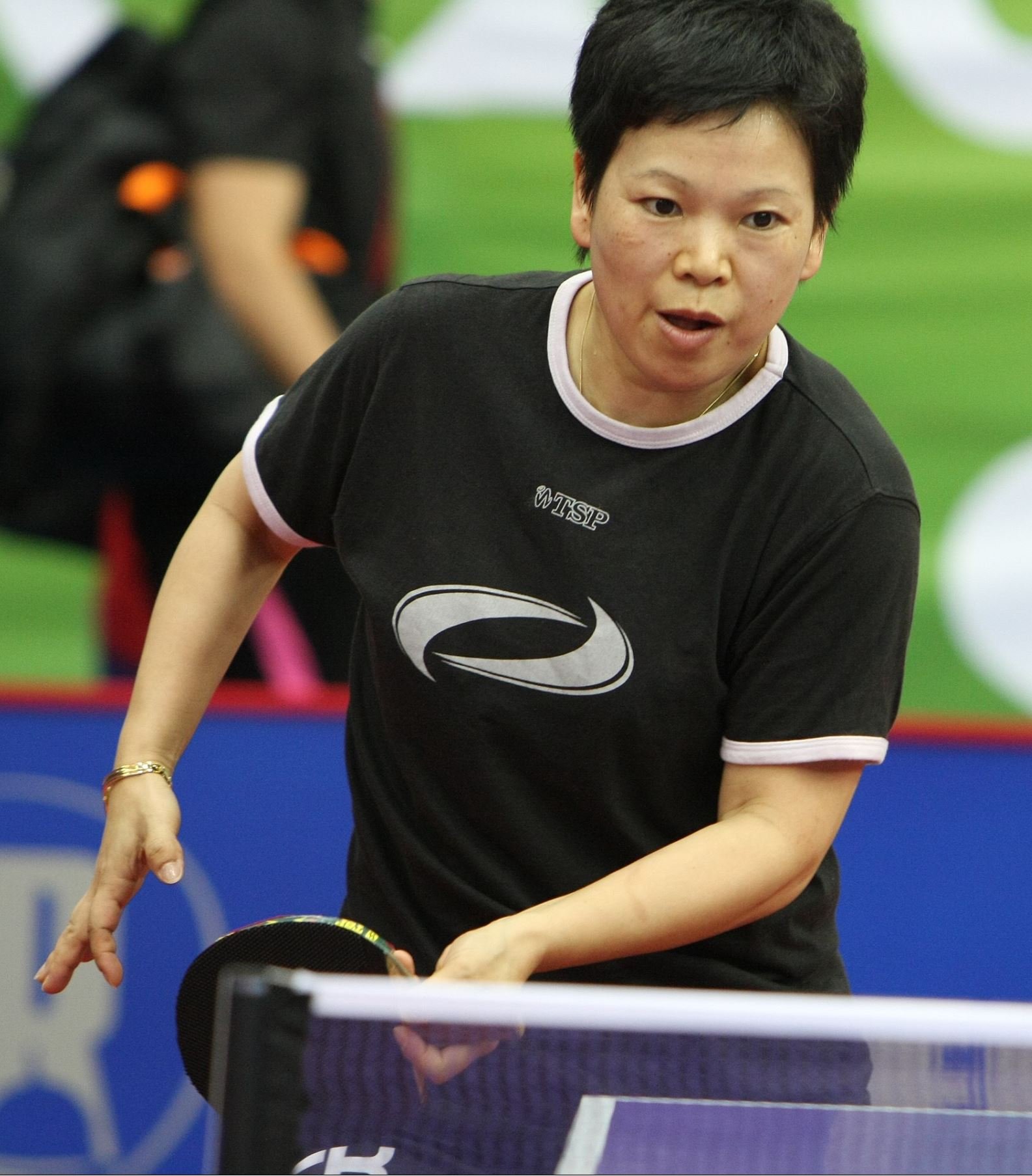Yusra Mardini: From Syrian Refugee to Olympic Inspiration
In the azure waters of an Olympic swimming pool, the rhythmic splashing of determined arms tells only a fraction of Yusra Mardini’s extraordinary story. Her journey across seas both literal and figurative—from war-torn Syria to the grandest sporting stage on earth—transcends the conventional narrative of athletic achievement. This is not merely a tale of medals and records, but of a young woman whose courage in the face of unimaginable adversity rippled far beyond the confines of competition.
“When you have a dream, you have to work hard for it,” Mardini once told The Guardian, her voice carrying the quiet conviction of someone who has lived these words in the most profound way possible. “Even if it seems impossible. Even if something is standing in your way.”
For Yusra, what stood in her way wasn’t simply a demanding training schedule or tough competition—it was the devastating Syrian Civil War, a perilous escape across borders, and a life-threatening journey across the Aegean Sea where her swimming skills saved not just her Olympic dreams, but the lives of 20 desperate refugees.
Yusra’s Early Beginnings: The Foundation of a Champion
Born on March 5, 1998, in Damascus, Syria, Yusra Mardini inherited a deep connection to water. In a city known for its ancient history and vibrant culture, young Yusra found her element in the swimming pool, guided by her father who served as her first coach. By the tender age of four, while most children were still gaining confidence in the shallow end, Yusra was already displaying the dedication that would one day propel her onto the world stage.
“Swimming was our life,” she would later recall in her autobiography “Butterfly: From Refugee to Olympian”. “The pool was like our second home.”
The Mardini household breathed swimming. Her father, a former swimmer for the Syrian national team, recognized his daughter’s natural talent early and nurtured it with the care of someone who understood both the joy and demands of the sport. Under his watchful eye, Yusra’s skills flourished in the pools of Damascus, her small frame cutting through the water with increasing precision and power.
By 2012, at just 14 years old, Yusra Mardini had already represented Syria in the FINA World Swimming Championships, competing in the 200-meter individual medley, 200-meter freestyle, and 400-meter freestyle events. Her trajectory pointed toward a promising swimming career, perhaps even Olympic glory for her homeland. According to Olympics.com, these early competitions laid the groundwork for her technical proficiency and competitive mindset.
But as Yusra refined her butterfly stroke and perfected her turns, Syria was descending into chaos. The Arab Spring movements of 2011 had given way to protests against President Bashar al-Assad’s government, which escalated into a full-blown civil war. The Damascus that Yusra knew—with its bustling markets, historic mosques, and familiar swimming facilities – was transforming before her eyes.
A Childhood Disrupted by War
As the conflict intensified, daily life became increasingly precarious. Training sessions were frequently interrupted by power outages. The sound of bombs replaced the comforting splash of pool water. The UN Refugee Agency documented how sports facilities, including swimming pools, were often damaged or repurposed for war efforts.
“Sometimes we couldn’t train because of the war,” Yusra told NPR. “Sometimes we had to stop during training because of bombs. We had to get out of the pool immediately and go somewhere else.”
Despite these challenges, Yusra Mardini continued to train whenever possible, finding pockets of normalcy in an increasingly abnormal situation. Her father remained devoted to her development, adjusting training schedules around the unpredictable patterns of conflict.
The war, however, showed no signs of abating. By 2015, the Syrian Civil War had claimed hundreds of thousands of lives and displaced millions. Among the countless heart-wrenching stories emerging from the crisis, Yusra’s was about to become one that would capture the world’s attention—not just for the tragedy it contained, but for the triumph of human spirit it would ultimately reveal.
Overcoming Adversity: Yusra Mardini’s Flight from Syria
By the summer of 2015, the situation in Damascus had deteriorated beyond what the Mardini family could bear. According to UNICEF USA, the family’s home had been destroyed, and the danger of remaining in Syria had become too great. With heavy hearts but determined spirits, 17-year-old Yusra and her older sister Sara made the difficult decision that millions of their countrymen had already faced: they would flee their homeland.
“I remember packing my bags,” Yusra later told Time Magazine. “Just a few clothes, my phone, and my swimming medals. Those medals were the only proof I had of who I was, of what I could do.”
The Perilous Journey Begins
The sisters’ escape route followed the dangerous path that thousands of refugees had taken before them. They traveled first through Lebanon and then to Turkey, where they connected with smugglers who promised passage to Greece – and by extension, to the European Union and the possibility of asylum.
In August 2015, Yusra and Sara found themselves on the Turkish coast, preparing to board an inflatable dinghy meant for six people but loaded with 20 desperate refugees. Each had paid the smugglers approximately $1,500 for the dangerous crossing of the Aegean Sea. According to the International Organization for Migration, thousands had already perished attempting similar journeys that year.
As recounted to the UNHCR, Yusra Mardini had misgivings from the start: “I was terrified. I’m a swimmer, and I was still terrified of the water… of being on a small boat in the middle of the sea.”
When Swimming Became Survival
About halfway through the journey to the Greek island of Lesbos, the overloaded dinghy’s motor began to fail. Water started seeping in. The boat, already dangerously overcrowded, began to sink. Panic spread among the passengers, many of whom couldn’t swim. At this moment of crisis, Yusra’s years of swimming training transformed from pursuit of sporting excellence to a matter of life and death.
Yusra, Sara, and two other passengers who could swim made an extraordinary decision. They slipped into the cold waters of the Aegean Sea and began to push and pull the floundering boat toward the distant shore. For over three hours, they swam alongside the dinghy, fighting exhaustion, hypothermia, and despair.
“It was quite hard to think you are a swimmer and you might end up dying in the water,” Yusra Mardini later told BBC Sport. “It was three hours and 36 minutes in water that was 18 degrees Celsius. After 20 minutes, we were already feeling cold. We were all silent, just concentrating on surviving.”
Their heroic efforts worked. Against overwhelming odds, Yusra, Sara, and the two others managed to guide the boat safely to the shores of Lesbos, saving the lives of all 20 passengers onboard.
A Turning Point: Finding Strength in Adversity
The journey across the Aegean Sea marked a pivotal moment in Yusra’s life. It was a crucible that tested not just her physical abilities as a swimmer, but her courage, determination, and humanity. In pushing that boat to safety, she discovered reserves of strength she never knew she possessed.
“I thought it was going to be the end of my story,” she shared with Reuters. “But it was actually the beginning.”
This crossing – terrifying and triumphant – would later become the defining chapter in Yusra’s story, capturing the imagination of people around the world. But at the time, it was simply one step in a longer journey. The sisters still had to make their way through Greece, Macedonia, Serbia, Hungary, and Austria before finally reaching Germany in September 2015, joining approximately one million refugees who sought asylum there that year according to the German Federal Office for Migration and Refugees.
For Yusra Mardini, the journey was both an ending and a beginning – the close of her life in Syria and the opening of an unexpected new chapter that would take her from refugee to Olympic athlete.
Yusra Mardini’s Pivotal Moments: From Refugee to Olympic Athlete
Upon arriving in Berlin in September 2015, Yusra and Sara faced the daunting task of rebuilding their lives in a foreign country. They were placed in a refugee camp on the outskirts of the city, sharing cramped quarters with hundreds of others who had fled conflict zones. The conditions were basic, the future uncertain, but Yusra remained focused on one thing: finding a pool where she could train.
Finding Her Way Back to Swimming
“I needed to swim,” Yusra told Deutsche Welle. “Not just for my Olympic dreams, but for my sanity. Swimming was the one constant in my life, the one thing that made me feel like myself.”
Through a stroke of luck and persistence, Yusra and her sister were directed to Wasserfreunde Spandau 04, a prestigious swimming club in Berlin. There, they met coach Sven Spannekrebs, who recognized Yusra’s talent and dedication immediately. Despite language barriers—Yusra spoke little German and limited English at the time—the universal language of sport bridged the gap.
According to ISPO.com, Spannekrebs was impressed by Yusra’s technique and commitment. He began training her intensively, often twice a day, helping her regain the conditioning she had lost during her journey from Syria.
“When I’m in the water, I forget everything,” Yusra shared with CNN. “I feel safe. I feel like at home. I feel like a human being again.”
The Creation of the Refugee Olympic Team
As Yusra Mardini’s training progressed, an unprecedented development was taking shape in the Olympic world. In October 2015, International Olympic Committee President Thomas Bach announced the creation of the first-ever Refugee Olympic Team to compete at the 2016 Rio Games. This team would represent the millions of displaced people worldwide and send a message of hope and inclusion.
When Sven Spannekrebs heard the announcement, he immediately thought of Yusra. Her times were improving rapidly, and her story embodied the resilient spirit the IOC sought to highlight. With his encouragement, Yusra Mardini began the process of being considered for this historic team.
In June 2016, the IOC officially announced the 10 athletes who would compete as the first Refugee Olympic Team in Rio. Yusra Mardini, not yet 18 years old, was among them. According to Olympics.com, Thomas Bach said of the team: “These refugee athletes will show the world that despite the unimaginable tragedies they have faced, anyone can contribute to society through their talent, skills, and strength of the human spirit.”
Olympic Dreams Realized in Rio
On August 6, 2016, Yusra Mardini stepped onto the starting block at the Olympic Aquatics Stadium in Rio de Janeiro. Just one year after pushing a sinking boat across the Aegean Sea to save 20 lives, she was competing in the women’s 100-meter butterfly heat at the Olympic Games.
The stadium erupted in applause as her name was announced. Though she didn’t advance to the semifinals, Yusra won her heat with a time of 1:09.21. More importantly, she had achieved something extraordinary: transforming from refugee to Olympian in less than a year.
Beyond Rio: Continued Olympic Journey
Yusra’s Olympic journey didn’t end in Rio. She continued training and improving her times, and in 2021, she was selected for the Refugee Olympic Team once again for the Tokyo Olympics. According to the UNHCR, her continued participation underscored her evolution as both an athlete and an advocate.
In Tokyo, despite the unusual circumstances of a pandemic-delayed Olympics, Yusra competed in the 100-meter butterfly again. Though she didn’t advance to the finals, her presence reaffirmed the enduring message of the Refugee Olympic Team: that displacement doesn’t diminish human potential.
“Sport saved my life,” Yusra declared at a Tokyo Olympics press conference. “The Olympic Games and the Refugee Olympic Team gave me a second chance at a new life.”
Through her swimming achievements, Yusra Mardini accomplished something remarkable – she transformed her identity from that of a victim of circumstance to an agent of change and inspiration. Her journey from the dangerous waters of the Aegean to the Olympic pools of Rio and Tokyo embodies the transformative power of sport and the indomitable human spirit.
Yusra Mardini’s Legacy: Inspiring Change Through Advocacy
While Yusra’s athletic achievements are remarkable, her impact extends far beyond the swimming pool. In April 2017, at just 19 years old, she was appointed as the youngest-ever Goodwill Ambassador for UNHCR, the UN Refugee Agency. This role formalized what had already become clear: Yusra Mardini’s greatest contribution would be as a voice for the voiceless, a beacon of hope for displaced people worldwide.
Becoming a Global Voice for Refugees
“I tell my story because I want people to understand that refugees are normal people who had to flee their homelands because of war or persecution,” Yusra told the World Economic Forum, where she was invited to speak as one of the youngest-ever participants. “We are not terrorists. We are human beings just like everybody else.”
As a UNHCR Goodwill Ambassador, Yusra Mardini has addressed some of the world’s most influential forums, including the United Nations General Assembly and the World Economic Forum in Davos. According to the UNHCR, her powerful testimony has helped humanize the global refugee crisis, challenging stereotypes and advocating for policies that recognize the dignity and potential of displaced populations.
In 2018, Yusra Mardini published her autobiography, “Butterfly: From Refugee to Olympian – My Story of Rescue, Hope and Triumph.” The book, which has been translated into multiple languages, provides an intimate account of her journey and serves as both a personal testimony and a call to action. As noted by the European Commission, the memoir has helped bring refugee issues to audiences who might otherwise remain disconnected from these realities.
The Swimmers: Bringing Her Story to a Global Audience
In 2022, Yusra’s story reached an even wider audience through the Netflix film “The Swimmers,” directed by Sally El Hosaini. The film dramatizes Yusra and Sara’s journey from Syria to the 2016 Rio Olympics, with Lebanese actresses Nathalie and Manal Issa portraying the sisters.
The film’s release on one of the world’s largest streaming platforms ensured that Yusra’s message of resilience and hope reached millions of viewers worldwide. According to Time Magazine, Yusra was deeply involved in the film’s development, ensuring it captured not just the drama of her escape but also the complex emotions and motivations behind her journey.
“I wanted people to understand that refugees don’t choose to leave their homes,” she explained to Vogue. “We love our countries. We leave because we have no other choice.”
Establishing the Yusra Mardini Foundation
Building on her platform as an athlete and advocate, Yusra established the Yusra Mardini Foundation to support young people and refugees through sports programs and humanitarian assistance. The foundation focuses particularly on education and swimming initiatives, embodying Yusra’s belief in sport as a vehicle for social integration and personal development.
“Swimming saved my life once,” she told the European Commission. “Through my foundation, I hope it can save many more lives—not literally, as it did for me in the Aegean, but by giving young refugees a sense of purpose, community, and hope.”
As the global refugee crisis continues with no end in sight – with conflicts in Ukraine, Sudan, Myanmar, and elsewhere displacing millions—Yusra’s message remains vital. Her example reminds us that behind the overwhelming statistics are individual human beings with dreams, talents, and potential that deserve recognition and support.
In the Olympic pool, Yusra Mardini may not have won medals, but she achieved something far more significant: she transformed her trauma into triumph, her struggle into strength, and her visibility into a voice for the voiceless. Her legacy transcends sport, challenging us all to see refugees not as statistics or problems, but as fellow human beings whose journeys deserve our respect and whose potential demands our support.
The Power of One Story to Change Perceptions
Like ripples expanding across still water, Yusra Mardini’s story echoes in the journey of another remarkable athlete who fled conflict to pursue her Olympic dreams. Weini Kelati’s path from Eritrea to American distance running excellence mirrors this same indomitable spirit, as she too navigated the precarious waters of seeking asylum while refusing to let go of her competitive fire. Just as Mardini transformed from a swimmer pushing a sinking boat to an Olympic symbol of hope, Kelati evolved from a teenage refugee running through unfamiliar American streets to a national champion whose achievements would inspire a generation. Their parallel journeys, though separated by continents and circumstances, illuminate the transcendent power of sport to forge new beginnings from the crucible of displacement. To understand another remarkable chapter in this legacy of resilience, read Weini Kelati’s extraordinary story here.
Photo By ONU Brasil, CC BY 3.0,




